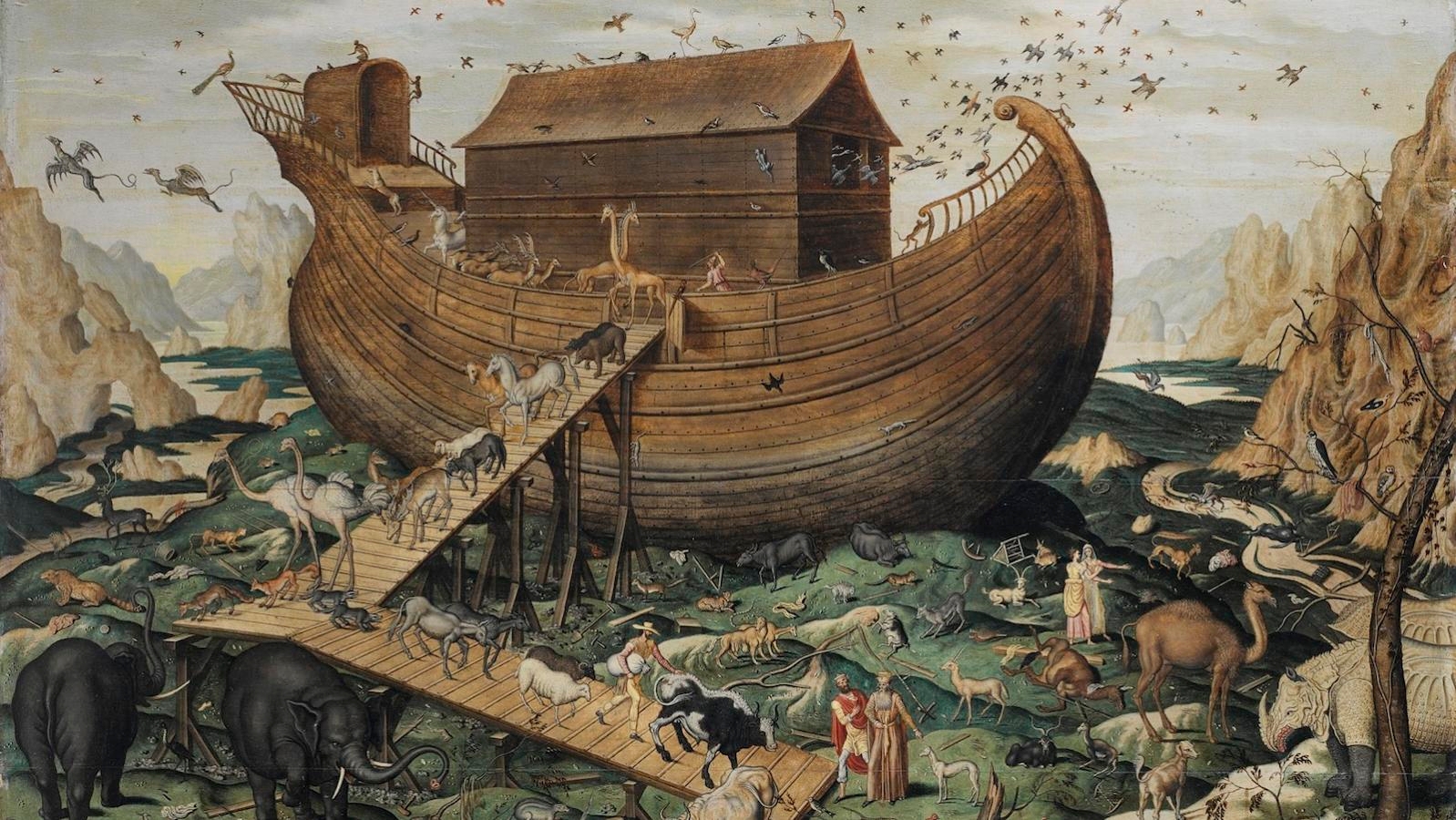Commentary on Parashat Noach, Genesis 6:9-11:32
Creation is not off to such a good start: the earth is filled with violence and corruption, and so God decides to flood the earth and start over, choosing Noah to build an Ark to save himself and his family and at least one pair of every kind of animal. After the flood, God establishes the Rainbow covenant with every living creature. Humans decide to challenge God by building the Tower of Babel, so they become dispersed, and the portion ends by introducing us to Avram (Abram) and Sarai, who will later on become Abraham and Sarah, the First Family of the Jewish nation.
In Focus
“And Noah went forth, and his sons, and his wife, and his son’s wives with him.”
— (Genesis 8:18)
Text
After the flood, God makes the waters recede; once determines that there is dry land, God gives him permission to leave the Ark with his family, and let all the animals go, so that the earth could be repopulated and the Creation process could begin again with a new covenant and a new set of “parents” for humankind.
Commentary
The contemporary commentator and Reform rabbi Kerry Olitzky, in his book Renewed Each Day: Daily Twelve Step Recovery Meditations Based on the Bible, connects this verse with a famous explanation of the Adam and Eve story. According to a , God decided to create the world with just one man and just one woman so that everybody would know that they have a common ancestor, and nobody would feel superior to another.

Help us keep Jewish knowledge accessible to millions of people around the world.
Your donation to My Jewish Learning fuels endless journeys of Jewish discovery. With your help, My Jewish Learning can continue to provide nonstop opportunities for learning, connection and growth.
So Rabbi Olitzky interprets the Noah story as the Torah’s way of emphasizing this point — we’re all related, we all can trace our ancestry not only to Adam and Eve, but also to Noah and his (unfortunately unnamed) wife, who were “righteous in their generation.” Thus, if the Torah really wants us to understand that we’re all connected to each other in the most basic way, through common ancestry, perhaps it’s challenging us to treat each other like the brothers and sisters we are.
The problem, of course, is that the brothers and the sisters of the Bible don’t always treat each other so well–the language of “siblinghood” is nice, but families can be cruel and jealous, as the Genesis stories of Isaac and Ishmael, of Jacob and Esau, and Joseph and his brothers will all amply demonstrate in the weeks to come. In fact, I once heard another contemporary Torah scholar, Rabbi Arthur Green, say that the basic question of the entire book of Genesis is: “How can I live with my brother?”
So how DO we live in peace and harmony with the other people–our brothers and sisters, to use the Torah’s imagery–with whom we share our communities, our countries, our planet? Returning to Rabbi Olitzky’s interpretation, our capacity for loving and moral behavior is made stronger by remembering that we are not only all children of Adam and Eve but also of Noah. What’s the difference?
Perhaps the difference is that Adam and Eve lived in a less complicated world than Noah did — they had violence in their family, for sure, but they didn’t have to face the pressure of resisting a whole society and its unGodly values. Noah did; he and his family weren’t perfect, but in a society filled with violence, greed, theft, corruption, materialism, and so on, he resisted and “walked with God.” (cf. Genesis 6:9-13) That’s who we’re descended from–somebody who saw a better way than others did, who lived his values and faith, who rose above a society and treated people as if they were not only related, but created in the Image of God.
Seen this way, the traditional Hebrew phrase “b’nei Noach,” which literally means “children of Noah” but has the idiomatic meaning of [non-Jewish] “human being,” becomes a title of great dignity and hope. We are the children of great men and women, who are capable of more than we think, and who can live with our brothers and sisters in peace and love if only we will remember where we came from, and where we want to go.
Reprinted with permission from Kolel: The Adult Centre for Liberal Jewish Learning, which is affiliated with Canada’s Reform movement.



